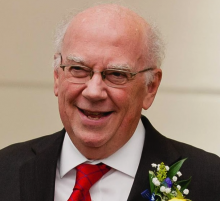What Is It
Is history just a series of events, or an interpretation of those events? Is there progress in history? Can history be objective, or is it, as Napoleon said, just the version of past events that people have decided to agree upon? Ken and John delve into the past and its meaning with Daniel Little, Chancellor of the University of Michigan-Dearborn and author of History's Pathways and Varieties of Social Explanation.
Listening Notes
Ken and John kick off the show by – as happens so often – figuring out what they are talking about. Is history just a sum total of events? Or are representations of the past part of what makes the mast what it is? Is history more like literature or science?
After the philosophical reporter reports, Daniel joins Ken and John and they discuss the nature of cause in history. Are there causal laws in history? What is human causation and what is structural causation, and is there really a difference? Given that each event has many interwoven causes, how does the historian choose which causes to include in a historical study of an event?
In the next section, Daniel, Ken, and John continue to explore the balance between individual human choices, structural causes, and contingent, chance happenings. Would Hitler have been able to start World War II without structural causes and chance happenings? Ken notes that structural causes seem to constrain, but not determine, what happens.
Ken and John then wonder how much we should look for patterns in history and narrate, rather than just report brute facts in history. Daniel points out that finding patterns in history does help us learn from the past. But how do we balance the need for narration with accuracy and comprehensiveness? Daniel defends the reputation and cause of academic history against accusations of unjust prejudice and bias.
In the last segment, Ken and John continue to discuss with Daniel the balance between getting the facts just right and pulling out inspiring, educational stories from history. Daniel emphasizes the importance of historians’ commitment to standards of rigor and commitment to evidence, and a caller argues that learning from the past means facing up to it, not sugar-coating it to find inspiration. Ken agrees, but reminds everyone of the value of the American attitude that we are not constrained to interpret ourselves as being ‘the same people’ as the people in our past who have made mistakes.
- Roving Philosophical Report (seek to 6:00): Philosophy Talk’s roving philosophical reporter visits Presidio National Park in San Francisco, which has a new display on the relatively unknown war between the US and Philippines in 1900. She discovers how seemingly small remnants from the past help us uncover and understand large historical events.
- 60-Second Philosopher (seek to 49:50): Ian Shoales reports on Giovanni Battista Vico, influential author of ‘The New Science’. Vico took an unconventionally poetic approach to history, and encouraged us to remember that historical actors are not just rational thinkers, but people with virtues and vices
